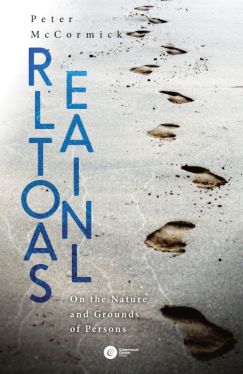Relationals. On the Nature and Grounds of Persons
Peter McCormick
In a world increasingly beset by climate change, pollution, epidemics, extinctions, and ever more generalized violence, more thoughtful and effective collective responses are needed. Were some persons, institutions, and communities, to change their most basic priorities from mainly preserving individual and social privileges to serve the communal and fundamental relational values of all, both history and experience show that emergent, innovative solutions to global problems would become more probable.
The issue of understanding and then changing basic priorities is framed here by two crucial contemporary debates centred around the relationship between language and personhood. The first is largely the preserve of archeologists and paleontologists and concerns specifying the moment when a person emerges as distinct from a human being, an event marked and guided by the appearance of human language. The second debate engages linguists and philosophers and concerns determining a person's distinctive capacities for full and not just partial human language uses. This is something more than the kind of full combinatorial language use enjoyed by the later Neanderthals of Lascaux, for example, since it insists on including not just linguistic reflection on the perfomance of impressiove symbolic actions to fully embrace linguistic and philosophic reflection on the nature of symbolic discourse itself. My hope is that this brief empirical and philosophical essay will provide further insights into the significance of these two debates and help bring about some fundamental changes in our understanding of the true nature of persons as essentially relational beings rather than as exclusively individual or social entities.
Peter McCormick is a Fellow of the Royal Society of Canada (Ottawa) and Permanent Member of the Institut International de Philosophie (Paris). Formerly Professor of Philosophy at the University of Ottawa, he is Fürst Franz Josef and Fürstin Gina Emeritus Professor of Moral Philosophy of the Internationale Akademie für Philosophie im Fürstentum Liechtenstein.
Informacje dodatkowe o Relationals. On the Nature and Grounds of Persons:
Wydawnictwo: Copernicus Center Press
Data wydania: 2020-10-22
Kategoria: Socjologia, filozofia
ISBN:
Liczba stron: 228

















Chcę przeczytać,